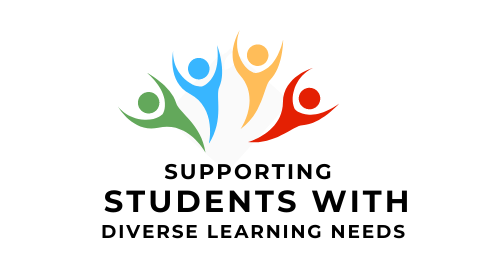- Organization and time management skills are part of a group of skills known as Executive Functions. Executive functioning skills include reasoning and organizational abilities that allow for goal-directed activities including planning and organizational skills, self-monitoring, self-regulation, complex problem-solving, and abstract reasoning abilities. Executive functioning also includes the ability to maintain sustained attention. These skills are integral to a student’s ability to access and accomplish learning, understand and meet expectations, organize their time, prioritize their efforts, and communicate effectively with others.
- Difficulties in areas of executive functioning may have different causes. Students may appear to experience executive functioning difficulties due to a disability, their current level of maturity, or their current level of skill development in these areas. As an instructor it may be difficult to know the cause of their challenges with these executive functions.
- Challenges in these areas can present significant barriers to students meeting course expectations, both in terms of being prepared for class and completing their work successfully. Students in these situations will likely require more ongoing support and guidance to develop the new skills, approaches, and capacities needed to succeed in a new environment.
- Students may experience difficulties in understanding and following instructions and in prioritizing and managing tasks. Students may find it difficult to follow multi-step instructions, especially if they have little experience in the task. They may also not follow through on requesting assistance independently or have the skills to initiate and manage the steps needed or the time commitments required to succeed.
- Help students to understand what is expected of them. Provide clear guidelines for assignments and expected time requirements to complete work.
- Provide clear directions and guidance for completing assignments. Providing step-by-step instructions for course assignments. Including templates and samples, when possible, can be very helpful to illustrate the final product for students.
- Provide feedback on performance. Give students constructive and realistic feedback on any concerns about their progress or lack of progress. This information gives students a reasonable opportunity to make the necessary changes to succeed.
- Work with students to implement strategies that work for them. For instance, a student may find it helpful to sit in a particular place in the classroom in order to help maintain attention. They may benefit from meeting with instructors regularly to discuss understanding of expectations.
- Connect students to learning supports. Connect students with campus resources such as a Learning or Student Success Centre to help students connect with supports to facilitate skill development.
- Detailed course/program orientation. More detailed and specific orientation to campus, course and program expectations and layout.
- Tutor/Mentor support. Tutoring and mentoring programs to review course content and enhance skill development.
- Regular ‘check-ins’. Requests that instructors check-in with student regarding their understanding of course expectations and progress on assignments more frequently.
- Learning strategy development. Encourage student to meet with campus and community resources to develop strategies to help reduce the impact of these difficulties. This could include introducing organizational tools, time management strategies, etc.
- Encourage manageable course load. Assist student to consider a reasonable course load, which may be a reduced course load, and to ensure reasonable fit with area of study given the student’s capabilities at this time.
- Testing accommodation. Extra time and a quiet space to complete tests in order to reduce distractions and provide additional time for comprehension of test questions and formulation of answers.
- Assistive technology and apps. Use of assistive technology such as organizational software and relevant apps to complete assignments and assist with effective studying techniques.
- Attention Deficit Disorder.
- Learning Disability such as non-verbal learning disabilities.
- Mental Health Condition.
- Autism Spectrum Disorder – rigidity may make it difficult for student to develop new strategies appropriate to, or needed, in the postsecondary environment.
Case Study
Brett was new to the college environment and to his program of study. He had been diagnosed with Attention Deficit Disorder. He struggled with keeping organized in his life and in high school and often became overwhelmed by having multiple expectations at one time. He knew the new environment at College would be a challenge. He also knew he wasn’t quite sure what to expect. He decided to meet with the Disability Advisor on campus well before classes started to see what supports were available.
Brett and the Disability Advisor discussed his situation and the types of supports and strategies that had worked for Brett in high school. The Advisor explained some of the differences in the learning environment at college and what Brett could expect from his program in terms of the structure of learning, assignments and tests.
Together they developed a starting plan for Brett that would help him feel prepared and supported as he started this new experience. Brett and the Disability Advisor planned to meet with the course instructor to discuss some strategies that Brett would find helpful in understanding course expectations and in maintaining focus in class. Arrangement for a note-taker were made and Brett was introduced to the Learning Skills Coordinator to set up a weekly time to work on a study skills plan for assignments and readings. Brett felt that he had a better sense of what to expect and that his instructor and the support staff at the College had a sense of both his commitment to success and the areas in which he would need support as he moved forward.

